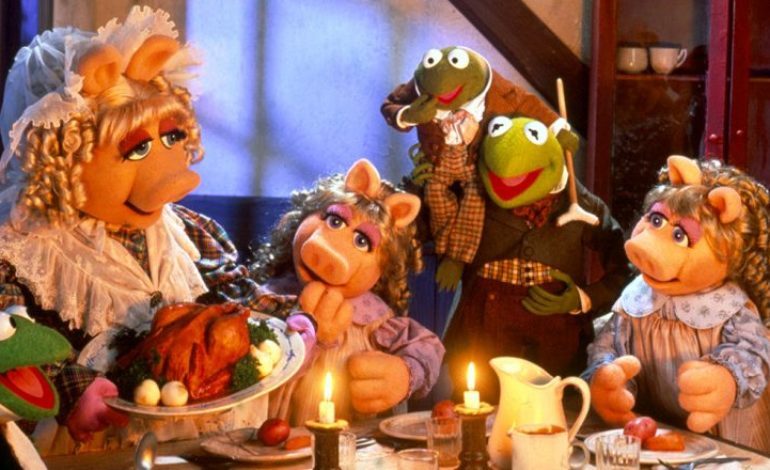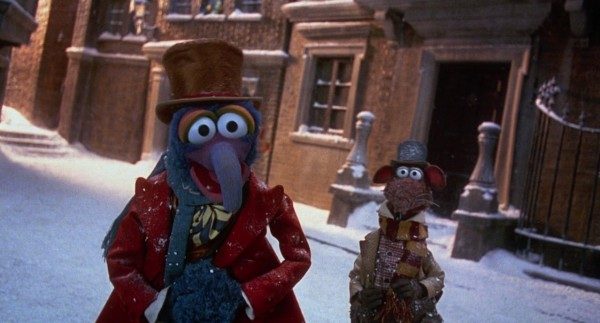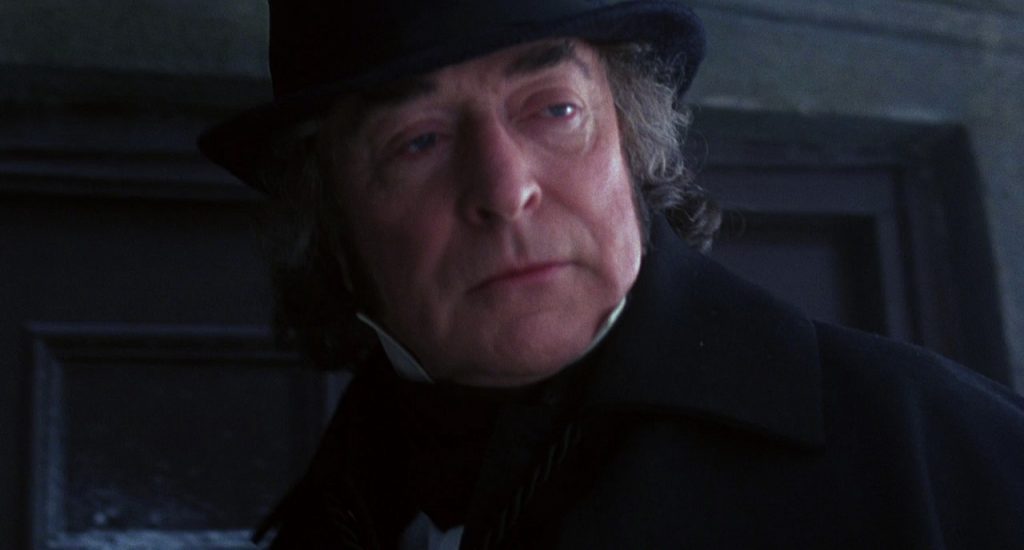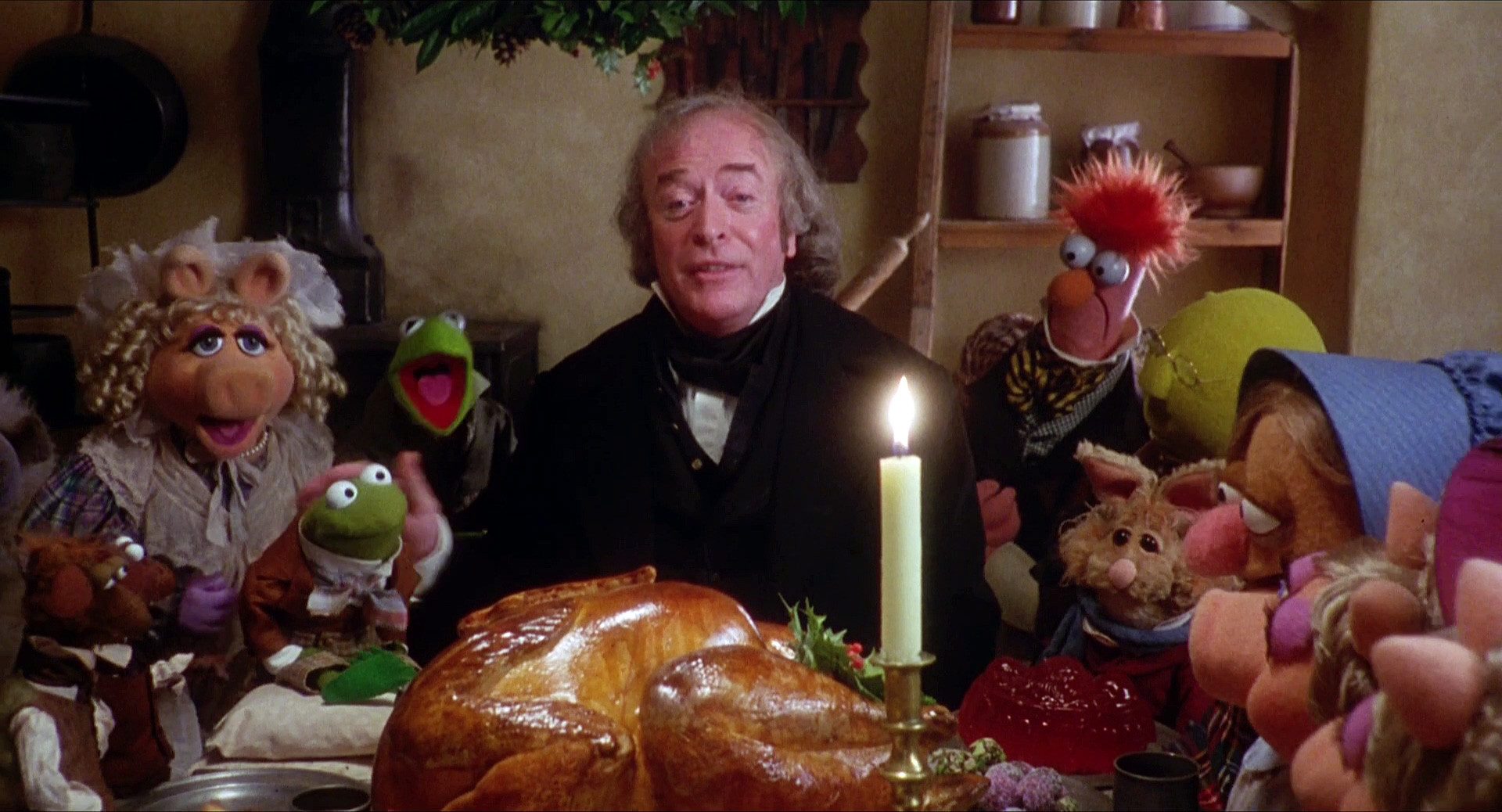

There’s a certain element to Christmas films and specials that’s just not found in other media. It’s hard to place. Is it the fact that they’re usually only viewed once a year? Is it because many have been around for decades and have been enjoyed by generation after generation? Is it because they almost always end on an uplifting message of hope and peace? It’s probably a bit of all three, but whatever the reason Christmas films are able to spark feelings not found anywhere else. One of the all-time essential holiday tales is of course Charles Dickens’ A Christmas Carol. Adaptations of the story across all forms of media number in the several hundred. Everyone has their own favorite interpretation but for my money the best adaptation is 1992’s A Muppet Christmas Carol.
The film was notable for being the first feature length Muppets production since the death of Jim Henson, and it was the first time the company attempted an adaptation on this scale. Hearing the concept of a Muppet re-telling of A Christmas Carol immediately conjures mental images of wacky hijinks and slapstick, but The Muppet Christmas Carol is the rare film that can seamlessly balance the comedy with the drama. The Muppets have always been great about walking that line. The Muppet Movie is a lighthearted and goofy road trip film, but it’s near impossible not to cry when Kermit begins singing “The Rainbow Connection”. That same talent is on full display here.
One of the film’s greatest strengths is in its name, the Muppets. These are characters that have been refined for years and years and have become beloved by people from all around the world and every generation. People just inherently like these characters and want to see more stories with them. Bob Cratchit is already a likeable, sympathetic character. Have Kermit portray him and it’d be impossible not to fall in love. It’s fun to see which iconic characters get portrayed by each Muppet. Statler and Waldorf playing “the Marleys” is a treat and makes for a fun new dimension to the character and allows for some entertaining banter with Scrooge. Gonzo serves as a narrator and is credited as “Charles Dickens”. The presence of a narrator figure allows for a lot of Dickens’ prose to find it’s way into the film beyond just the dialogue. Additionally, Gonzo is joined by Rizzo the Rat for some extra comic relief.


Whenever you see one of the Muppets turn up in the film for the first time it captures the feeling of watching a theater troupe you go to see a lot. A group of actors who have been working together for years and who are masters of their craft. This is not only true for the Muppets as characters, but for the actual performers behind them too. That familiarity and those nostalgic feelings around the Muppets draw upon warm memories of childhood. Perfect for the holiday season. Despite watching it on Disney+ this year, I find myself wanting to watch my old VHS copy on a small CRT TV.
Of course the Muppets are not alone in this retelling. There is of course Ebenezer Scrooge, one of the few characters in the film not portrayed by a Muppet. Veteran British actor Michael Caine dons the nightcap and candle in what might just be one of his best ever performances. When approaching the role, Caine stated that he was playing the character as if it was being done with the Royal Shakespeare Company. He never mugs for attention or tries to engage in slapstick with the Muppets, he plays the role as any distinguished actor would, and the film benefits amazingly from it. Caine’s stern and harsh performance contrasts wonderfully with the colorful and energetic Muppets, making his change of heart all the more intense and satisfying.
Caine doesn’t just nail the harsh side of Scrooge, he also knocks it out of the park in his moments of grief and joy. The performance Caine gives in moments like Scrooge and Belle’s goodbye and the graveyard scene are downright heartbreaking. Likewise, when Scrooge makes amends at the end of the film, his childlike glee is infectious. These scenes are also a great example of the filmmakers balancing out the drama and the comedy. Throughout the film Gonzo and Rizzo provide plenty of comic relief, but the film knows when to hold them back and let the story play out as intended. The entire Ghost of Christmas Yet to Come sequence is done without the two narrators and it allows for those devastating moments like the death of Tiny Tim to hit all the more. The film does not shy away from the darker aspects of Dickens’ story, which makes the ending all the more heartwarming.


Beyond the astounding performances from human and Muppet alike, one of the key ingredients holding the film together is its music. The Muppet Christmas Carol is also a musical on top of just being a literary adaptations. Of course there have been many widely celebrated musical versions of this story, and The Muppet Christmas Carol does what any good musical ought to do, organically weave its songs into the DNA of the story to enhance the overall product. The purpose of a song in a musical is to either advance the plot or allow the audience a deeper insight to the characters.
The songs of The Muppet Christmas Carol do just that. Through “One More Sleep ‘Til Christmas”, we learn the importance of the holiday season to Bob Cratchit and the whole town. “Marley and Marley” is an ominous tune the sets the stakes for the rest of the film and showcases the dark fate that awaits Scrooge should he continue down his current path. Then there’s “When Love is Gone”, that plays when Belle leaves Scrooge. A song that was cut after the initial VHS release in part for being too sad and not being as engaging for younger viewers. The original film negatives for the song had been lost and were only recently found this year. There’s hope that the song will be restored in the 4K Blu-Ray release. I certainly hope it does. It makes the end of Scrooge’s visit to the past all the more heartbreaking and is some of Caine’s best work.
Music of course is a key component of Christmas as well. In a religious setting, church hymns are crucial part of the season and are a way of expressing devotion and respect. Even outside the church, Christmas music is an entity in and of itself. Just like the Christmas movies, the music of the holidays is a long standing and sentimental. It’s a way to convey Christmas spirit, and that’s perfectly in line with the way musicals tell stories and convey emotions through song.


Everyone has their Christmas movies that they watch every year per tradition. I myself have always been fond of the Rankin Bass specials of the 1960s and other classic works like the original How the Grinch Stole Christmas. Some specials I watch for pure nostalgia, but with each viewing of The Muppet Christmas Carol, it cements itself more firmly as one of, if not my all-time favorite Christmas special. It’s a perfect mix of childhood nostalgia and brilliant storytelling that captures the spirit of Christmas. I can safely say it’s my favorite version of the Charles Dickens story, and my hope is that it continues to be enjoyed for generation upon generation.
